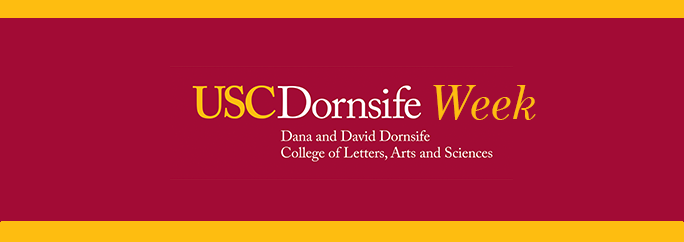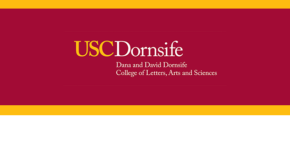
The Academic Minute from 03.18 – 03.22
Monday, March 18th
Moh El-Naggar – USC Dornsife
Microorganisms
Moh El-Naggar is the Robert D. Beyer Early Career Chair in Natural Sciences, and Professor of Physics, Biological Sciences, and Chemistry at the University of Southern California Dornsife College of Letters, Arts and Sciences.
As a biophysicist, El-Naggar investigates energy conversion and charge transmission at the interface between living cells and synthetic surfaces. His work, which has important implications for cell physiology and bioelectronics, may lead to the development of new hybrid materials and renewable energy technologies that combine the exquisite biochemical control of nature with the synthetic building blocks of nanotechnology.
Tuesday, March 19th
Megan Carroll – USC Dornsife
Incidental Activists
Megan Carroll is a PhD Candidate in sociology at the USC Dornsife College of Letters, Art and Sciences, specializing in gender, sexuality, family, and social movements. Her research projects range from a statistical study of wage discrimination experienced by immigrant mothers and women of color, to a community-engaged research study of asexual patients’ interactions with health care professionals. Her dissertation research argues that gendered and racialized social processes grant disproportionate visibility to some LGBTQ families over others, creating inequalities within the gay fatherhood community.
Wednesday, March 20th
David Newman – USC Dornsife
Conservatives Report Greater Meaning In Life
David B. Newman is a Ph.D. candidate in social psychology at the USC Dornsife College of Letters, Arts and Sciences and is a member of the USC Dornsife Mind and Society Center. He received an M.A. in experimental psychology at the College of William and Mary and a B.A. in psychology at the University of Virginia. His research is primarily focused on understanding well-being in ecologically valid contexts. To capture within-person variations in daily and momentary states of well-being, he often uses daily diary and experience sampling techniques. Some of his current research addresses how people find meaning and purpose in their daily lives.
Thursday, March 21st
Daniel Benjamin – USC Dornsife
Genetics and Academic Achievement
Daniel J. Benjamin’s research is in behavioral economics (which incorporates ideas and methods from psychology into economic analysis) and genoeconomics (which incorporates genetic data into economics). He is an Associate Professor at the USC Dornsife Center for Economic and Social Research and the Economics Department at the USC Dornsife College of Letters, Arts and Sciences and he is a Research Associate at the National Bureau of Economic Research.
He holds a PhD in Economics from Harvard University, a Masters degree in Mathematical Economics from the London School of Economics, a Masters degree in Statistics from Harvard University, and a Bachelors Degree in Economics from Harvard University. He is a Co-Founder and Co-Director of the Social Science Genetic Association Consortium), which promotes interdisciplinary collaboration and well-powered research in social-science genomics.
Friday, March 22nd
Irene Chiolo – USC Dornsife
First Responders In The Body
Irene Chiolo is an Assistant Professor of Biological Sciences with the USC Dornsife College of Letters, Arts and Sciences. She and her team investigate heterochromatin, the ‘dark matter of the genome’, using Drosophila (fruit flies) and mouse cell cultures as model systems. Heterochromatin was little explored for years because it did not appear to encode much genetic information. However, it is a large component of DNA, with mostly repeated sequences requiring a specialized and complex repair process, where mistakes have severe consequences stemming from improper chromosome rearrangements. Even given the high risk and high stakes of heterochromatin DNA repair, these processes remain largely understudied. Research in Dr. Chiolo’s laboratory led to several landmark discoveries, including the identification of the nuclear periphery as a specialized site for heterochromatin repair (Ryu et al, Nature Cell Biology, 2015), and the identification of nuclear actin filaments and myosins as molecular motors propelling this movement (Caridi, D’agostino, et al., Nature, 2018). Failures in these pathways result is aberrant recombination and chromosome rearrangements. This research will ultimately contribute to our understanding of human diseases associated with genome instability, including cancer, aging, developmental defects and neurological disorders.
